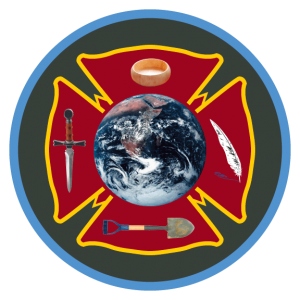Edit of 20 Dec 07 to add links including books since published.
On balance this is a well researched book (albeit with a Langley-Saudi partiality that must be noted), and I give it high marks for substance, story, and notes. It should be read in tandem with several other books, including George Crile's Charlie Wilson's War: The Extraordinary Story of How the Wildest Man in Congress and a Rogue CIA Agent Changed the History of Our Times and the Milt Bearden/James Risen tome on The Main Enemy: The Inside Story of the CIA's Final Showdown with the KGB.
The most important point in the book is not one the author intended to make. He inadvertently but most helpfully points to the fact that at no time did the U.S. government, in lacking a policy on Afghanistan across several Administrations, think about the strategic implications of “big money movements.” I refer to Saudi Oil, Afghan Drugs, and CIA Cash.
Early on the book shows that Afghanistan was not important to the incumbent Administration, and that the Directorate of Operations, which treats third-world countries as hunting grounds for Soviets rather than targets in their own right, had eliminated Afghanistan as a “collection objective” in the late 1980's through the early 1990's. It should be no surprise that the CIA consequently failed to predict the fall of Kabul (or in later years, the rise of the Taliban).
Iran plays heavily in the book, and that is one of the book's strong points. From the 1979 riots against the U.S. Embassies in Iran and in Pakistan, to the end of the book, the hand of Iran is clearly perceived. As we reflect on Iran's enormous success in 2002-2004 in using Chalabi to deceive the Bush Administration into wiping out Saddam Hussein and opening Iraq for Iranian capture, at a cost to the US taxpayer of over $400 billion dollars, we can only compare Iran to the leadership of North Viet-Nam. Iran has a strategic culture, the US does not. The North Vietnamese beat the US for that reason. Absent the development of a strategic culture within the US, one that is not corrupted by ideological fantasy, Iran will ultimately beat the US and Israel in the Middle East.
The greatest failure of the CIA comes across throughout early in the book: the CIA missed the radicalization of Islam and its implications for global destabilization. It did so for three reasons: 1) CIA obsession with hard targets to the detriment of global coverage; 2) CIA obsession with technical secrets rather than human overt and covert information; and 3) CIA laziness and political naiveté in relying on foreign liaison, and especially on Saudi Arabia and Pakistan.
Both Admiral Stansfield Turner and Dr. Zbigniew Brzezinski come in for criticism here. Turner for gutting the CIA, Brzezinski for telling Pakistan it could go nuclear (page 51) in return for help against the Soviets in Afghanistan.
Although the book does not focus on Bin Laden until he becomes a player in Afghanistan, it does provide much better discussion of Bin Laden's very close relations with Saudi intelligence, including the Chief of Staff of Saudi intelligence at the time, Bin Laden's former teacher and mentor. There appears to be no question, from this and other sources, including Yossef Bodansky's book Bin Laden: The Man Who Declared War on America and David Kaplan's US News & World Report on Saudi sponsorship of global terrorism, that Bin Laden has been the primary Saudi intelligence agent of influence for exporting terrorism and Islamic radicalism to South Asia, the Pacific Rim, Africa, Europe, Russia, and the US. CIA and the FBI failed to detect this global threat, and the USG failed to understand that World War III started in 1989. As with other evils, the US obsession about communism led it to sponsor new emerging threats that might not otherwise have become real. However, the book also provides the first documentation I have seen that Bin Laden was “noticed” by the CIA in 1985 (page 146), and that Bin Laden opened his US office in 1986. It was also about this time that the Russian “got it” on the radical Islamic threat, told the US, and got blown off. Bob Gates and George Shultz were wrong to doubt the Soviets when they laid out Soviet plans to leave Afghanistan and Soviet concern about both the future of Afghanistan and the emerging threat from Islamic terrorism.
The middle of the book can be considered a case study in how Pakistani deception combined with American ignorance led us to make many errors of judgment. Some US experts did see the situation clearly–Ed McWilliams from State (“Evil Little Person” per Milt Bearden) comes out of this book looking very very smart.
The final portions of the book are detailed and balanced. What comes across is both a failure of the US to think strategically, and the incredibly intelligent manner in which Bin Laden does think globally, strategically, and unconventionally. Bin Laden understands the new equation: low-cost terrorism equals very high cost economic dislocation.
Side note: CIA provided the Islamic warriors in Afghanistan with enough explosives to blow up half of New York (page 135), and with over 2000 Stinger missiles, 600 of which appear to remain in the hands of anti-US forces today, possibly including a number shipped to Iran for re-purposing (ie London, Dallas, Houston)
One final note: morality matters. I am greatly impressed with the author's judgment in focusing on the importance that Bin Laden places on the corruption of US and Saudi Arabian governments and corporations as the justification for his jihad. Will and Ariel Durant, in “The Lessons of History,” make a special point of discussing the long-term strategic value of morality as a “force” that impacts on the destiny of nations and peoples. The US has lost that part of the battle, for now, and before we can beat Bin Laden, we must first clean our own house and demand that the Saudi's clean theirs or be abandoned as a US ally. Morality matters. Strategic culture matters. On these two counts, Bin Laden is winning for now.
Other books that augment this one:
The Looming Tower: Al Qaeda and the Road to 9/11 (Vintage)
Web of Deceit: The History of Western Complicity in Iraq, from Churchill to Kennedy to George W. Bush
Jawbreaker: The Attack on Bin Laden and Al-Qaeda: A Personal Account by the CIA's Key Field Commander
First In: An Insider's Account of How the CIA Spearheaded the War on Terror in Afghanistan
See No Evil: The True Story of a Ground Soldier in the CIA's War on Terrorism
Sleeping with the Devil: How Washington Sold Our Soul for Saudi Crude
Crossing the Rubicon: The Decline of the American Empire at the End of the Age of Oil





